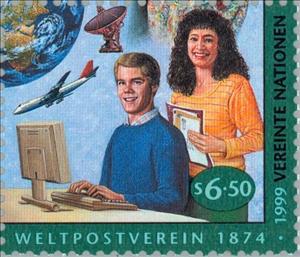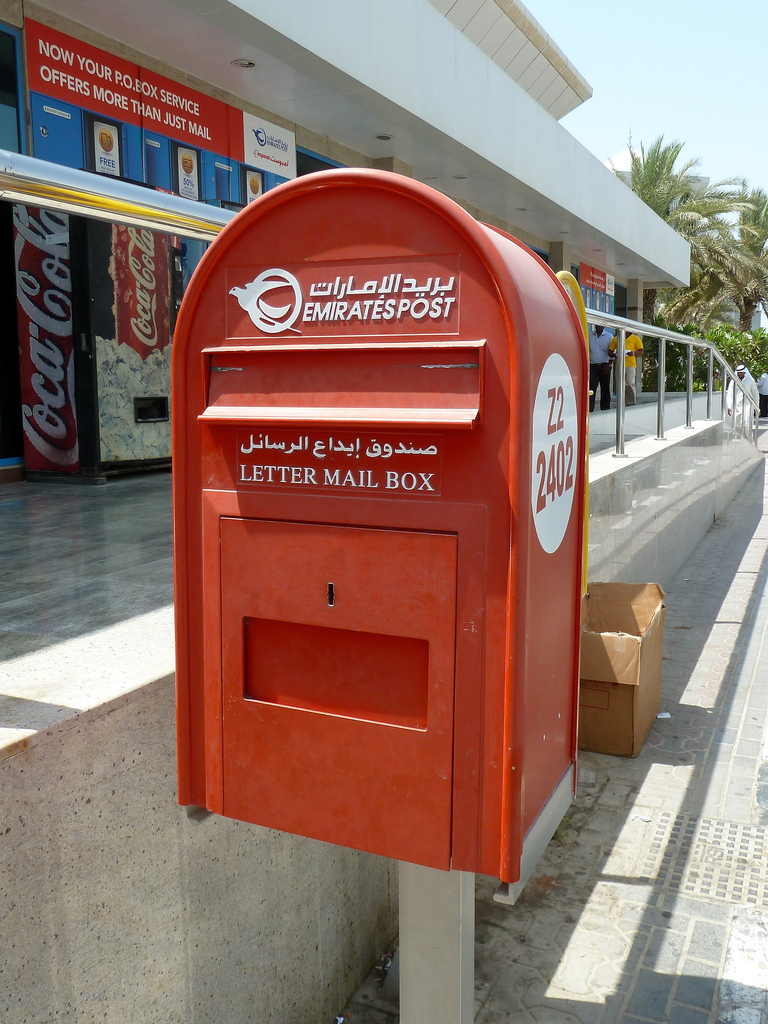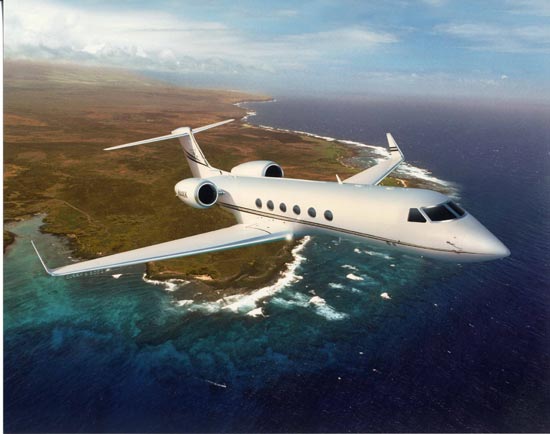Stamp: 125 years of U.P.U. (UNO Vienna 1999)
125 years of U.P.U. (UNO Vienna 1999)
01 January (UNO Vienna ) within release U.P.U. goes into circulation Stamp 125 years of U.P.U. face value 6.50 Austrian schilling
| Stamp 125 years of U.P.U. in catalogues | |
|---|---|
| Michel: | Mi:NT-WN 297 |
Stamp is square format.
Also in the issue U.P.U.:
- Stamp - U.P.U. face value 6.50;
- Stamp - U.P.U. face value 6.50;
- Stamp - U.P.U. face value 6.50;
- Stamp - 125 years of U.P.U. face value 6.50;
|
Data entry completed
46%
|
|
|---|---|
| Stamp 125 years of U.P.U. in digits | |
| Country: | UNO Vienna |
| Date: | 1999-01-01 |
| Perforation: | 11¾ |
| Format: | Stamp |
| Face Value: | 6.50 Austrian schilling |
Stamp 125 years of U.P.U. it reflects the thematic directions:
A vehicle (from Latin: vehiculum) is a mobile machine that transports people or cargo. Typical vehicles include wagons, bicycles, motor vehicles (motorcycles, trucks, buses), railed vehicles (trains, trams), watercraft (ships, boats), aircraft and spacecraft. Land vehicles are classified broadly by what is used to apply steering and drive forces against the ground: wheeled, tracked, railed or skied. ISO 3833-1977 is the standard, also internationally used in legislation, for road vehicles types, terms and definitions.
The mail or post is a system for physically transporting documents and other small packages; or, the postcards, letters, and parcels themselves. A postal service can be private or public, though many governments place restrictions on private systems. Since the mid-19th century national postal systems have generally been established as government monopolies with a fee on the article prepaid. Proof of payment is often in the form of adhesive postage stamps, but postage meters are also used for bulk mailing. Modern private postal systems are typically distinguished from national postal agencies by the names "courier" or "delivery service". Postal authorities often have functions other than transporting letters. In some countries, a postal, telegraph and telephone (PTT) service oversees the postal system, in addition to telephone and telegraph systems. Some countries' postal systems allow for savings accounts and handle applications for passports.
The Universal Postal Union (UPU, French: Union postale universelle) is a specialized agency of the United Nations (UN) that coordinates postal policies among member nations and facilitates a uniform worldwide postal system. It comprises 192 member states and is headquartered in Bern, Switzerland
Telecommunication, often used in its plural form or abbreviated as telecom, is the transmission of information with an immediacy comparable to face-to-face communication. As such, slow communications technologies like postal mail and pneumatic tubes are excluded from the definition. Many transmission media have been used for telecommunications throughout history, from smoke signals, beacons, semaphore telegraphs, signal flags, and optical heliographs to wires and empty space made to carry electromagnetic signals. These paths of transmission may be divided into communication channels for multiplexing, allowing for a single medium to transmit several concurrent communication sessions. Several methods of long-distance communication before the modern era used sounds like coded drumbeats, the blowing of horns, and whistles. Long-distance technologies invented during the 20th and 21st centuries generally use electric power, and include the telegraph, telephone, television, and radio.
A computer is a machine that can be programmed to automatically carry out sequences of arithmetic or logical operations (computation). Modern digital electronic computers can perform generic sets of operations known as programs. These programs enable computers to perform a wide range of tasks. The term computer system may refer to a nominally complete computer that includes the hardware, operating system, software, and peripheral equipment needed and used for full operation; or to a group of computers that are linked and function together, such as a computer network or computer cluster.
Aviation is the practical aspect or art of aeronautics, being the design, development, production, operation and use of aircraft, especially heavier than air aircraft. The word aviation was coined by French writer and former naval officer Gabriel La Landelle in 1863, from the verb avier (synonymous flying), itself derived from the Latin word avis ("bird") and the suffix -ation.
An aircraft is a machine that is able to fly by gaining support from the air. It counters the force of gravity by using either static lift or by using the dynamic lift of an airfoil, or in a few cases the downward thrust from jet engines. The human activity that surrounds aircraft is called aviation. Crewed aircraft are flown by an onboard pilot, but unmanned aerial vehicles may be remotely controlled or self-controlled by onboard computers. Aircraft may be classified by different criteria, such as lift type, aircraft propulsion, usage and others.
An anniversary is the date on which an event took place or an institution was founded in a previous year, and may also refer to the commemoration or celebration of that event. For example, the first event is the initial occurrence or, if planned, the inaugural of the event. One year later would be the first anniversary of that event. The word was first used for Catholic feasts to commemorate saints. Most countries celebrate national anniversaries, typically called national days. These could be the date of independence of the nation or the adoption of a new constitution or form of government. The important dates in a sitting monarch's reign may also be commemorated, an event often referred to as a "Jubilee".








